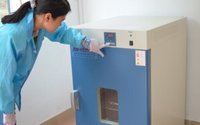What are the factors that affect the size of the impact coefficient?
Date:2023-08-24 16:40:00Views:941
Impact coefficient refers to the ratio of the deformation of a material under impact load to the load. Impact coefficient is one of the important indicators to measure the ability of materials to resist impact loads. There are many factors that affect the size of the impact coefficient, and we will provide a detailed introduction around this issue below.
1. Physical properties of materials
The physical properties of materials are one of the important factors affecting the magnitude of the impact coefficient. The physical properties of a material, such as density, elastic modulus, yield strength, and fracture toughness, all affect the magnitude of the impact coefficient. Generally speaking, materials with higher density, elastic modulus, yield strength, and fracture toughness also have higher impact coefficients.
2. Microstructure of Materials
The microstructure of materials is also one of the important factors affecting the size of the impact coefficient. The microstructure of materials, such as grain size, crystal structure, grain boundaries, and defects, can all affect their impact performance. Generally speaking, materials with smaller grain size, more complete crystal structure, fewer grain boundaries, and fewer defects will also have larger impact coefficients.
_20230824163531_466.jpg)
3. Temperature
Temperature is also one of the factors that affects the magnitude of the impact coefficient. As the temperature increases, the strength and toughness of the material will decrease, leading to a decrease in the impact coefficient. Therefore, when conducting impact tests, it is necessary to control the temperature to ensure the accuracy of the test results.
4. Shape and size of impact load
The shape and size of the impact load are also one of the factors that affect the magnitude of the impact coefficient. Different shapes and sizes of impact loads have different effects on the impact performance of materials. Generally speaking, the larger the impact load and the sharper the shape of the load, the greater the impact performance of the material.
5. Impact speed
The impact speed is also one of the factors that affects the size of the impact coefficient. As the impact speed increases, the impact coefficient of the material also increases. This is because an increase in impact velocity can lead to the concentration of stress and strain inside the material, thereby increasing the deformation of the material.
When conducting impact tests, it is necessary to comprehensively consider these factors in order to obtain accurate test results. Chuangxin Testing is a professional testing institution for electronic components. Currently, it mainly provides integrated circuit testing services such as capacitors, resistors, connectors, MCU, CPLD, FPGA, DSP, etc. Specializing in functional testing of electronic components, appearance testing of incoming electronic components, anatomical testing of electronic components, acetone testing, X-ray scanning testing of electronic components, and ROHS composition analysis testing. Welcome to call, we will be happy to serve you!




 Weixin Service
Weixin Service

 DouYin
DouYin
 KuaiShou
KuaiShou




















